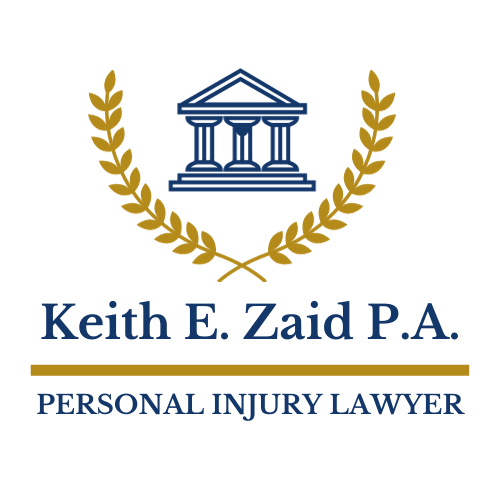What is Comparative Negligence in New Jersey Personal Injury Cases?
In the world of personal injury law in New Jersey, not all accidents are cut and dried when it comes to assigning blame. Often, multiple parties share some level of responsibility for an incident, whether it’s a car crash, a slip and fall, or even a medical malpractice case. Understanding how New Jersey handles shared blame through a legal doctrine known as comparative negligence is crucial for anyone involved in a personal injury case within the state.
Understanding Comparative Negligence in New Jersey
Defining Comparative Negligence
Comparative negligence is a fundamental concept in New Jersey’s personal injury law. At its core, it determines the degree of fault each party bears in an incident that leads to personal injuries. Unlike some states that employ a contributory negligence system, New Jersey follows a “pure” comparative negligence system.
Pure Comparative Negligence
In New Jersey, the pure comparative negligence system means that an injured party can recover damages even if they are partially at fault for the incident. The compensation they receive is reduced in proportion to their degree of fault. This aspect of the law offers a more balanced approach, ensuring that those who are partially responsible for an accident are not entirely denied compensation.
The Role of Comparative Negligence in Personal Injury Cases
Impact on Damages
One of the most significant roles of comparative negligence in New Jersey personal injury cases is its impact on the damages awarded to the injured party. The compensation an injured party receives is directly affected by the degree of fault attributed to each party involved in the incident.
In cases where the injured party shares a portion of the blame, the total damages are reduced by the percentage of their fault. For example, if an injured party is deemed 20% at fault, they can still recover 80% of the total damages.
Apportioning Fault
Apportioning fault is a complex process in personal injury cases in New Jersey. It involves a careful assessment of the actions and responsibilities of all parties involved in the accident or incident. Attorneys and insurance companies may engage in negotiations to determine the appropriate allocation of blame.
Comparative Negligence in Common Personal Injury Scenarios in New Jersey
Motor Vehicle Accidents
Motor vehicle accidents are a prevalent scenario where comparative negligence often comes into play in New Jersey. In multi-vehicle accidents, determining each driver’s degree of fault can be a complex endeavor.
Slip and Fall Cases
Slip and fall cases are another frequent type of personal injury claim in which shared blame can be a factor in New Jersey. These cases often hinge on factors like property maintenance and the injured party’s awareness of hazards.
Medical Malpractice
Medical malpractice cases may involve allegations of negligence by both healthcare providers and patients, leading to questions of shared blame. For example, if a patient fails to follow medical instructions, it may impact the outcome of the case.
Product Liability
Product liability cases in New Jersey may involve shared blame when the injured party’s use of a product is called into question. Attorneys must navigate the complexities of product design, warnings, and user behavior when assessing fault.
The Process of Determining Comparative Negligence in New Jersey
Investigation and Evidence
Establishing the degree of fault in a personal injury case in New Jersey requires a thorough investigation and the collection of compelling evidence. This process involves examining accident reports, medical records, witness statements, and other pertinent information.
Role of Expert Witnesses
Expert witnesses, such as accident reconstructionists or medical experts, may be called upon to provide insights into the circumstances of the incident. These experts play a crucial role in helping attorneys and courts assess shared blame accurately.
Legal Strategies for Handling Comparative Negligence Cases in New Jersey
Building a Strong Case
Attorneys in New Jersey must construct a robust case that addresses both the plaintiff’s and defendant’s roles in the incident. This involves gathering evidence, interviewing witnesses, and consulting with experts to present a compelling argument.
Negotiating Settlements
Negotiating a fair settlement in cases involving comparative negligence requires skillful legal representation and a deep understanding of the law. Attorneys aim to secure the best possible outcome for their clients while considering the degree of shared blame.
Litigating in Court
In cases where a fair settlement cannot be reached, litigation in a New Jersey court may be necessary to determine the degree of shared blame and appropriate compensation. Attorneys present their cases before judges and juries, seeking a favorable verdict.
Challenges and Considerations in Comparative Negligence Cases in New Jersey
Determining Degrees of Fault
One of the primary challenges in New Jersey comparative negligence cases is accurately assessing and proving the degree of fault. Attorneys must compile evidence, consult experts, and provide persuasive arguments to establish the extent of shared blame.
Impact on Damages
The potential reduction in damages due to shared blame can significantly affect the compensation an injured party receives. Attorneys must advocate vigorously to minimize the impact of comparative negligence on their clients’ recoveries.
Jury Consideration
Juries in New Jersey must carefully consider the evidence and instructions related to comparative negligence when rendering a verdict. This requires a thorough understanding of the law and the ability to assess shared blame impartially.
The Role of a Personal Injury Lawyer in Handling Comparative Negligence Cases in New Jersey
Investigating Shared Blame
Experienced personal injury lawyers in New Jersey play a critical role in investigating and assessing shared blame in personal injury cases. They collaborate with experts, gather evidence, and build a strong case for their clients.
Crafting Legal Strategies
Attorneys develop legal strategies that account for comparative negligence, aiming to maximize their client’s compensation. They
negotiate skillfully, present compelling arguments, and litigate effectively when necessary.
Representing Clients in Court
Skilled attorneys in New Jersey advocate for their clients in court, presenting a compelling case that addresses shared blame effectively. They navigate the complexities of comparative negligence law to secure the best possible outcome.
Conclusion: Navigating Shared Blame and Maximizing Compensation in New Jersey
In personal injury cases in New Jersey, shared blame is a factor that can significantly impact the outcome. By understanding the principles of comparative negligence, enlisting the help of experienced attorneys, and crafting compelling legal strategies, injured parties can navigate shared blame and maximize their chances of fair compensation.
Frequently Asked Questions About Comparative Negligence in New Jersey
Here are answers to common questions about comparative negligence in New Jersey personal injury cases, offering clarity to those navigating the legal process:
1. What are the key differences between comparative negligence and contributory negligence?
Comparative negligence allows an injured party to recover damages even if they share some fault for the incident, with their compensation reduced in proportion to their degree of fault. Contributory negligence, on the other hand, bars recovery entirely if the injured party is found even slightly at fault.
2. How does the insurance company determine the degree of comparative negligence in a personal injury case?
Insurance companies typically investigate the incident, review evidence, and may consult experts to determine the degree of comparative negligence. Their assessment can significantly impact the settlement offer.
3. Can an injured party still file a lawsuit if they are partially at fault in New Jersey?
Yes, an injured party can still file a lawsuit in New Jersey even if they share some degree of fault. The outcome of the case will depend on the evidence presented and the court’s assessment of shared blame.
4. Are there limits to the reduction of damages in New Jersey’s pure comparative negligence system?
No, New Jersey’s pure comparative negligence system does not impose limits on the reduction of damages based on the injured party’s degree of fault. Damages are reduced in direct proportion to the assigned percentage of fault.
5. How can an attorney help me navigate shared blame in my personal injury case in New Jersey?
An experienced personal injury attorney can investigate the incident, assess shared blame, gather compelling evidence, negotiate with insurance companies, and represent you effectively in court. Their expertise is invaluable in securing fair compensation.
Navigating shared blame and comparative negligence in New Jersey requires a comprehensive understanding of the legal principles and effective legal representation. Seeking the counsel of an experienced personal injury lawyer can make a significant difference in the outcome of your case, ensuring that you receive the compensation you deserve in the Garden State.


